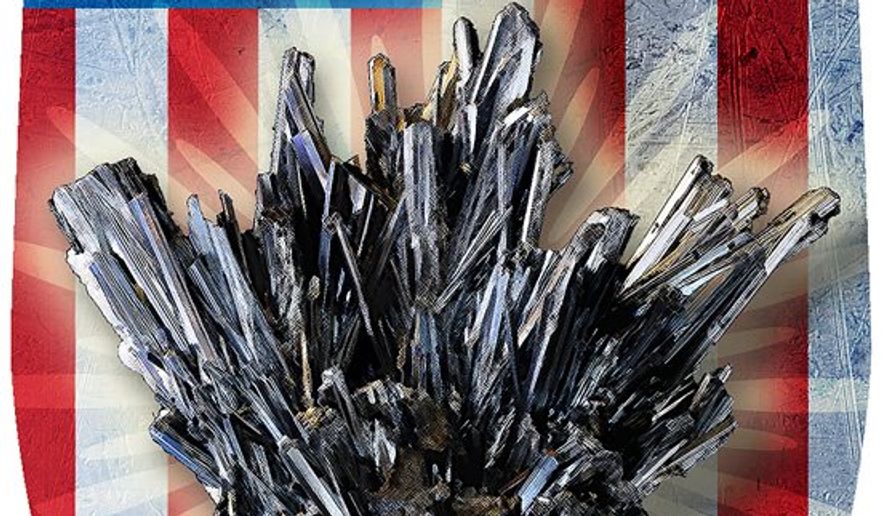OPINION:
The Biden administration faces major challenges as the United States withdraws from Afghanistan. Among the long list of concerns is the “loss” of Afghanistan’s vast mineral resources—particularly the raw materials critical to the production of renewable energy technologies—and their potential exploitation by the Taliban and Chinese partners. But while America’s mineral supply chain problems are cause for deep concern, Afghanistan has never been the answer.
Yes, Afghanistan possesses significant mineral resources valued at more than $1 trillion. And since 2010—when an internal Department of Defense memo cited Afghanistan’s vast mineral riches—these resources have been used to justify the continued American presence. It’s also true that America’s technological and clean energy future rests on the availability of these critical minerals. In fact, the International Energy Agency recently reported that the growth of renewable energy systems and electric vehicles (EVs) could increase critical mineral demand six-fold by 2040.
However, developing Afghanistan’s minerals—including everything from copper and rare earth metals to lithium—has always been enormously difficult due to the country’s rough terrain, fragmented infrastructure, and crippling instability. While the Biden administration must work to deter Chinese cooperation with the Taliban in developing Afghanistan’s resources, the answer to America’s mineral supply chain concerns has always been here at home.
Both the Biden and Trump administrations have rightfully expressed alarm regarding supplies of these essential materials. America’s mineral import reliance has doubled in just the past two decades. And at the same time, China has amassed stunning control over the world’s key mineral supply chains—and now controls 70 percent of the world’s lithium supplies and 85 percent of rare earth metals. China has used control of these supply chains to dominate the industries and jobs that depend on them. China now produces 70 percent of the world’s solar modules and will soon be home to more than 100 lithium-ion battery mega factories, the technological heart of the EV revolution.
But for all the recent focus on Afghanistan’s minerals, the U.S. possesses mineral reserves estimated at more than $6 trillion. Our resources are far larger and far more important to shore up our economic security. It’s past time to ramp up domestic production.
While American miners produce considerable amounts of minerals essential to our economy, we can and should be producing far more. Proposed mines and processing facilities could ramp up domestic production of lithium, copper, nickel, and rare earths. But that will only happen if we prioritize domestic mining as the foundation for U.S. jobs and climate policy. We must reduce duplicative regulatory barriers to responsible domestic production and provide smart policy support for U.S. producers competing with subsidized mining operators in China that use forced labor and toxic environmental practices.
Now that the entire country of Afghanistan is under Taliban control, the U.S. should use every tool at its disposal to discourage the production of these resources by unscrupulous Chinese or Russian operators.
President Biden must make clear that any Chinese or Russian companies that engage with the Taliban to obtain these strategic resources will be subject to sanctions in U.S. capital markets. As such, these entities would be banned from accessing U.S. investor funds. Companies that contract with the Taliban should also be placed on the Commerce Department’s Entity List—denying them access to U.S. equipment, technology, components, and services. Such penalties may well serve as a deterrent—and force state-controlled Chinese and Russian companies to make a stark choice between doing business with the Taliban or the United States.
The current situation in Afghanistan is immensely difficult. But concern over the loss of Afghanistan’s minerals is misplaced. Access for the West was always extremely problematic at best. If anything, this moment is a timely reminder that the United States must embark on a concerted effort to become a more self-reliant industrial nation. That includes the safe, timely, and responsible production of needed metals and minerals at home.
President Biden must move urgently to break U.S. reliance on mineral resources imported from China, Russia, and other geopolitical rivals—and build the responsible, domestic minerals industrial base we need. Doing so is the safest and wisest long-term course for America’s future economic and national security.
• John Adams, U.S. Army brigadier general (retired), is president of Guardian Six Consulting and a former deputy U.S. military representative to NATO’s Military Committee.




Please read our comment policy before commenting.